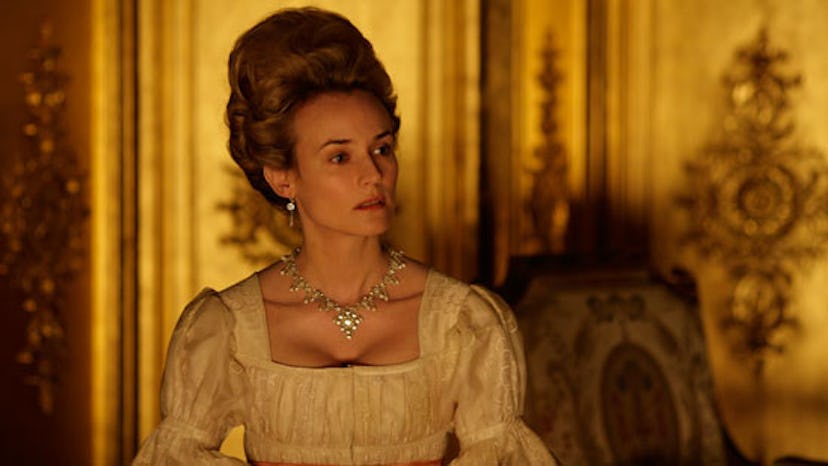Five Minutes With Diane Kruger
Diane Kruger is no stranger to a high profile role (the former fashion model turned actress famously portrayed Helen of Sparta in Troy in 2004); this weekend, the German beauty will celebrate her 36th birthday...

Diane Kruger is no stranger to a high profile role (the former fashion model turned actress famously portrayed Helen of Sparta in Troy in 2004); this weekend, the German beauty will celebrate her 36th birthday with the opening of Benoit Jacquot’s film, Farewell, My Queen, in which Kruger takes on the court of Versailles—and an all-female love triangle—as a wan and wanton Marie Antoinette, in the final four days before the outbreak of the French Revolution.
How does one prepare for the role of the Queen? She’s kind of borderline schizophrenic in this film, which was really difficult to portray because the movie is about her, but you don’t see her all that often. No scene has a direct link with the next; every scene was so extreme in all directions, so you try your best to make her as nuanced and as different as you can.
Was there some particular nuance you were set on capturing? I wanted to make sure you see her journey, in those four days, from being this capricious, superficial young girl to becoming a queen, finally, even though it was too late.
You’re fluent in three languages. Do you go into a different psyche, or mood, when you’re in a French-speaking role, like this one, as opposed to English or German? Well, yes, whenever my German accent comes out, my boyfriend knows he needs to shut up. It’s like, “shut up now.” [laughs] This was 18th century French, so it felt very foreign to me. There were moments when I didn’t feel like myself at all.
There were rumors of Marie Antoinette being a lesbian. Between women, do you think desire and eroticism can extend beyond the physical? I certainly couldn’t imagine having a physical relationship with a woman per se, but when two women have an attraction for each other, whether mentally or just that they get along, it seems to be more complex in a way. I don’t know why that is.
Is there a period of dress you admire most? How does 18th century court dressing rank in your book? It’s a little complicated for my taste! It was very restricting; I was a little worried about it in the beginning and was like, “How am I ever going to act with this stuff?” But of all the periods, I’m most inspired by the fifties or late forties.
Mr. Lagerfeld is like a father figure to you. Did he give you any advice for this movie? It’s not so much advice. But, for example, he’s obsessed with Versailles—I actually went to a concert with him in Versailles once, to see Vanessa Paradis. He knows every painting that is in Versailles, who was in the painting, who commissioned the painting. So, I picked his brains so much about this movie.
The dress also has a story. Exactly. For example, he said make sure that the costumes were not too great, because this is the end of this era and money was tight and even Marie Antoinette had to reuse old dresses to rework into new ones, so it was definitely a period where things started to look a little shabby.
Just a tinge! It was no longer the era where she had a bow in her hair, you know.
Photo: Carole Bethuel